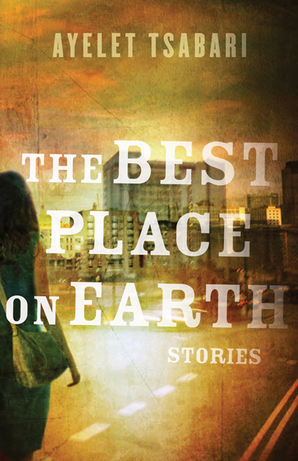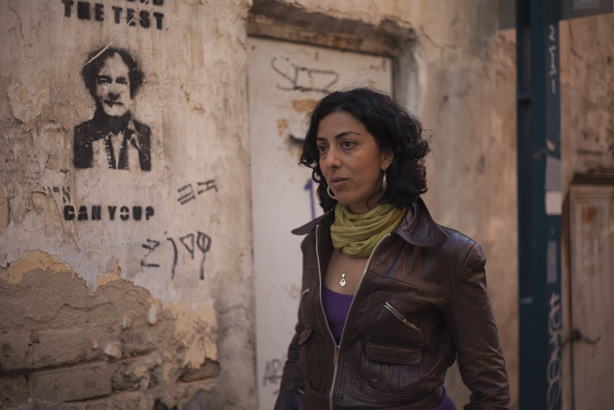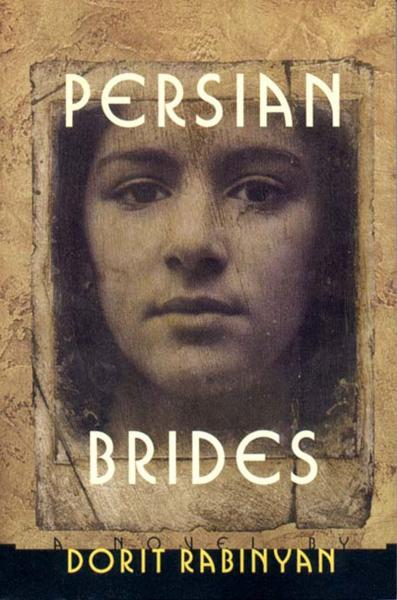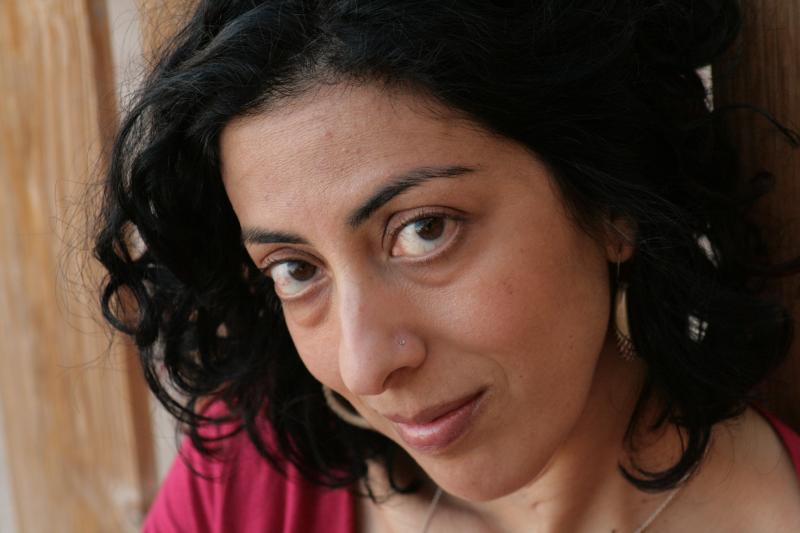Samantha Rousseau interviewed Ayelet Tsabari, 2015 creative non-fiction contest judge and author of The Best Place on Earth. Deadline for submissions to Room’s annual CNF contest is March 8, 2015.
Samantha Rousseau interviewed Ayelet Tsabari, 2015 creative non-fiction contest judge and author of The Best Place on Earth. Deadline for submissions to Room’s annual CNF contest is March 8, 2015. Photo Credit: Sean Brereton.
ROOM: What is your process for writing creative non-fiction work? Does it differ from your fictional work?
AT: With fiction, I often start with an idea or an image or a scenario or a voice in my head. As I write, more comes to me until it all shapes into a (messy, raw, overwritten) draft. In theory, there’s a lot more space for surprise in the process. With creative non-fiction I think I know the story I want to tell so I sit down to write with a better idea of where I am going. Yet, perhaps because I came to CNF from fiction, and use so many fiction techniques in my CNF writing, I find many parallels in my process of writing the two genres. With both genres I usually start out not knowing the real story, the underlying theme or meaning, which often reveals itself to me in subsequent drafts and helps shape and unify the piece. In both genres I often start out by writing fragments—half scenes, bits of dialogue, random thoughts—and then later on I patch them together into something cohesive (though in CNF, I may sometimes choose to keep it in fragments, while in fiction I tend to follow a more traditional narrative structure). Both demand honesty and fearlessness and commitment to truth. Both come with limitations and constraints I have to abide. Both genres also offer a sense of freedom, either in the permission to invent, or in the comfort of knowing I don’t have to. In the end, a story is a story, whether it is made up, or grounded in real life events and characters.
ROOM: What do you think makes a great CNF piece? Is this different from a great fiction piece?
 AT: A great CNF piece (like any great piece of writing) is alive. It has a pulse. It makes me feel deeply. It’s beautifully crafted, the language, the rhythm, the sentences, the imagery. And it stays with me after I finish reading it.
AT: A great CNF piece (like any great piece of writing) is alive. It has a pulse. It makes me feel deeply. It’s beautifully crafted, the language, the rhythm, the sentences, the imagery. And it stays with me after I finish reading it.
ROOM: What do your students have the hardest time with when writing creative non fiction? What are the common mistakes?
AT: Believing that their stories matter, that people would want to read them. Many of my students worry that they need to lead extraordinary lives in order to write CNF. I always say I’ve never met a student who didn’t have a story to tell. I remind them that fiction often tells quiet, ordinary stories about common people. If you write your story well, readers will care.
Many of my students (and writers in general, I think!) often struggle with finding the real story. Often we are compelled to write something but we’re not sure why. That’s fine. I encourage my students to not worry about it in their first drafts. You may write a story about a trip you’ve taken with your mother to the lake, but then realize it’s really about your fear of becoming a mother. I love this quote by Vivian Gornick, “What happening to the writer is not what matters; what matters is the larger sense that the writer is able to make of what happened.” The theme or meaning of the story is what makes our ordinary stories relatable, what elevates them beyond the personal and makes them universal, what makes the “I” into a “We.” My advice is to ask these three questions in order to unearth the theme: What is the story really about? Why do I need to tell this story? Why would anyone care?
ROOM: Do you have any advice for writers looking to experiment with the genre?
AT: Be fearless. Write the things that scare you. Go there. Don’t edit as you go long. Don’t worry about writing crap. You have to write crap to get to the good stuff. And read, read, read.
ROOM: What’s your favourite Creative Non Fiction piece?
AT: You can’t possibly ask me to name just one! That’s cruel! I’ll pick two today. “Alphabet Autobiografica” by Eufemia Fantetti is innovative and lyrical and unified by the theme of language and miscommunication. It’s also an example for when a container fits the contents; Fantetti is using the Italian alphabet as a framing device, which works with the meaning. It’s brilliant. I also love “The Love of My Life” by Cheryl Strayed, which is raw, brutally honest and gorgeously written, and breaks my heart into a million pieces every time I read it. There are so many others. I’ll stop here.

Photo Credit: Elsin Davidi
ROOM: Your recent work centers on an idea of place and displacement. What methods do you use to establish a sense of place in your work?
AT: I’ve always been obsessed with place. As a kid, I loved exploring physical spaces; I’d crawl under bushes and into nooks and would always seek out shortcuts in my neighbourhood, even when it involved trespassing. As a teenager, I journeyed up and down the country on buses, fascinated by a dusty bus station in the middle of nowhere and the people that inhabited it as if it were a tourist destination. I am also an immigrant, and a granddaughter of immigrants. I call two countries home and seem to always be pining for somewhere. I try to evoke all the senses when I write about place, but I have an affinity with smell. Every place has a unique smell. Whenever I land in a new place or revisit an old one I inhale – deeply and try to identify it. Smell is the most nostalgic of the senses, and it often triggers a strong emotional response from the reader.
The other thing I keep in mind when writing about place is how a character’s state of mind (whether it’s in fiction or nonfiction) influences her experience of the place. I always describe settings through the lens of emotion. The same wind may caress you or it may stab you, depending on your mood. A sunset may seem glorious and warm to a person in love, but look like an open wound to someone who’s broken.
ROOM: Room has an upcoming issue themed translation. How does your work in English differ from your work in Hebrew?
AT: It’s been a long time since I wrote in Hebrew, so it’s hard for me to tell how much of it is the change in language, and how much of it is maturity and experience. My vocabulary in Hebrew was much larger than it is in English and I enjoyed flaunting it, writing prose that was often too flowery. I think switching to English simplified my writing and improved it. Writing under constraint challenged me, made me humble, and made me creative— I had to tell stories with fewer words. It was like learning to write all over again.
 ROOM: You wrote that the English language is “crowded with consonants.” Could you explain what that means in relation to Hebrew?
ROOM: You wrote that the English language is “crowded with consonants.” Could you explain what that means in relation to Hebrew?
AT: I was referring to specific words in the English language: words that have consonants clusters in them can be difficult to pronounce for people whose English isn’t their first language. You long for a vowel, a space for breathing. But this observation relates mostly to pronunciation and to how a language sound, to accents and the musicality of language, which is an entirely different topic. Another problem I’ve had with speaking English, is the distinction between short and long vowels, which does nor exist in Hebrew. Let’s just say that I’ve said, “Let’s go to the bitch!” when I meant to say “the beach,” and couldn’t distinguish between “Red” and “Rad,” and “Ferry” and “Furry” for the longest time.
ROOM: You have written before that you were nervous about writing about Israel. Why? How did overcoming this unease strengthen your writing?
AT: You can’t write about Israel without being viewed through a political lens, whether you like it or not. Readers seek that in writing about that region. Keeping in mind, at the time I was just starting out as a writer, took on writing in a second language, which was stressful enough, and was riddled with doubt and apprehension. Writing about Israel felt like a huge responsibility that I wasn’t sure I was ready for. People could get mad, or accuse me of being pro this or anti that, or tell me I was wrong, as if there was one truth, one way to write about Israel. But Israel kept nagging at me; it was the story I needed to write.
Once I started writing about Israel, without fear and with what can only be described as chutzpa, I couldn’t stop. The feeling was intoxicating, like every time you follow your heart. You feel alive. I put it all down, everything that made me anxious: religion, politics, racism. It was liberating. And yes, people got mad, people read between the lines and thought I was saying this or that. Some who hadn’t even read the book or knew my politics were calling to boycott me on Facebook! That’s okay. I was writing my small-t truth. That’s all one can do.
ROOM: Can you recommend some books by other Mizrahi writers, and/or Mizrahi women writers for our readers?
AT: Unfortunately, Israeli Mizrahi writers have not been as widely translated as Ashkenazi writers, so I have smaller pool to select from. Sami Michael is probably the most internationally known Mizrahi author in Israel and one of my favourite writers. An Iraqi Jew who identifies as an Arab Jew, he wrote his first novel in Arabic, his mother tongue, before switching to Hebrew. I love Dorit Rabinyan’s work; her first book, Persian Brides, is set in Iran. I also admire Ronit Matalon, a prolific Israeli writer of Egyptian descent.
ROOM: When will your book come out? Will it be fiction or nonfiction?
AT:I am working on a memoir in essays about growing up Mizrahi in Israel, about leaving, travelling and returning. It deals with similar themes to the ones I explore in my fiction, place, transience, belonging, and displacement.
Inspired to enter Room’s annual creative non-fiction contest? Check out the submission guidelines on our contests page.














